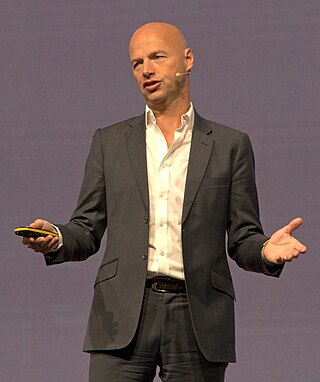Related Research Articles
Affirmative action, also known as positive action or positive discrimination, involves sets of policies and practices within a government or organization seeking to include particular groups that were historically discriminated against in areas in which such groups are underrepresented, mistreated or suffer from lack of public support — such as education and employment. Historically and internationally, support for affirmative action has sought to achieve goals such as bridging inequalities in employment and pay, increasing access to education, promoting diversity, and redressing wrongs, harms, or hindrances.
An internship is a period of work experience offered by an organization for a limited period of time. Once confined to medical graduates, internship is used practice for a wide range of placements in businesses, non-profit organizations and government agencies. They are typically undertaken by students and graduates looking to gain relevant skills and experience in a particular field. Employers benefit from these placements because they often recruit employees from their best interns, who have known capabilities, thus saving time and money in the long run. Internships are usually arranged by third-party organizations that recruit interns on behalf of industry groups. Rules vary from country to country about when interns should be regarded as employees. The system can be open to exploitation by unscrupulous employers.
Employment is a relationship between two parties regulating the provision of paid labour services. Usually based on a contract, one party, the employer, which might be a corporation, a not-for-profit organization, a co-operative, or any other entity, pays the other, the employee, in return for carrying out assigned work. Employees work in return for wages, which can be paid on the basis of an hourly rate, by piecework or an annual salary, depending on the type of work an employee does, the prevailing conditions of the sector and the bargaining power between the parties. Employees in some sectors may receive gratuities, bonus payments or stock options. In some types of employment, employees may receive benefits in addition to payment. Benefits may include health insurance, housing, disability insurance. Employment is typically governed by employment laws, organisation or legal contracts.

A résumé, sometimes spelled resume, is a document created and used by a person to present their background, skills, and accomplishments. Résumés can be used for a variety of reasons, but most often they are used to secure new employment.
The H-1B is a visa in the United States under the Immigration and Nationality Act, section 101(a)(15)(H), that allows U.S. employers to employ foreign workers in specialty occupations. A specialty occupation requires the application of specialized knowledge and a bachelor's degree or the equivalent of work experience. The duration of stay is three years, extendable to six years, after which the visa holder can reapply. Laws limit the number of H-1B visas that are issued each year. There exist congressionally mandated caps limiting the number of H-1B visas that can be issued each fiscal year, which is 65,000 visas, and an additional 20,000 set aside for those graduating with master’s degrees or higher from a U.S. college or university. An employer must sponsor individuals for the visa. USCIS estimates there are 583,420 foreign nationals on H-1B visas as of September 30, 2019. The number of issued H-1B visas have quadrupled since the first year these visas were issued in 1991. There were 206,002 initial and continuing H-1B visas issued in 2022.

The U.S. Equal Employment Opportunity Commission (EEOC) is a federal agency that was established via the Civil Rights Act of 1964 to administer and enforce civil rights laws against workplace discrimination. The EEOC investigates discrimination complaints based on an individual's race, color, national origin, religion, sex, age, disability, genetic information, and retaliation for participating in a discrimination complaint proceeding and/or opposing a discriminatory practice.

Recruitment is the overall process of identifying, sourcing, screening, shortlisting, and interviewing candidates for jobs within an organization. Recruitment also is the process involved in choosing people for unpaid roles. Managers, human resource generalists and recruitment specialists may be tasked with carrying out recruitment, but in some cases public-sector employment, commercial recruitment agencies, or specialist search consultancies are used to undertake parts of the process. Internet-based technologies which enhance all aspects of recruitment are now widespread, including the use of artificial intelligence (AI).
A full-time job is employment in which workers work a minimum number of hours defined as such by their employer.
An employment website is a website that deals specifically with employment or careers. Many employment websites are designed to allow employers to post job requirements for a position to be filled and are commonly known as job boards. Other employment sites offer employer reviews, career and job-search advice, and describe different job descriptions or employers. Through a job website, a prospective employee can locate and fill out a job application or submit resumes over the Internet for the advertised position.

Xtracycle is the name of a company and the name commonly used for the variety of load-carrying bicycle, a longtail or a longbike, that results from use of the company's products: the FreeRadical kit, complete long-frame bicycles and associated accessories. Web forums and blogs often use the shorthand Xtrabike, Xtra, or simply X to refer to either the FreeRadical extension or the entire extended bicycle. An Xtracycle may be constructed by modifying an existing bicycle with a Free Radical extension, or by custom-building an extended-tail bicycle frame.
Martin Percy is a director of interactive video. He has won a BAFTA British Academy Award, five Webby Awards and a Grand Clio;. He has also received three Emmy nominations, ten Webby nominations and fourteen Webby honorees.. He has created interactive video pieces for the Tate Gallery, Asian Art Museum of San Francisco, British Film Institute and National Theatre, working with people including Ian McKellen, Derek Jacobi, Gordon Ramsay, Julie Walters, Tracey Emin, Jonathan Ross and Malcolm McDowell. His interactive video pieces are integral to Tate Tracks, a marketing campaign for the Tate Gallery which won a Gold Lion at the Cannes Lions International Advertising Festival. His work is discussed in an interview with Betsy Isaacson for The Huffington Post. In 2014 he gave a TEDx talk about his interactive film Lifesaver.
GameZombie TV is a web series that produces original video game shows. GameZombie was the recipient of a Webby Honoree Award for Online Video in 2008 and 2009, a Davey Award, a Webby Award, and a People's Voice Webby Award in 2010, and nominated a finalist for Best Web Video at the 4th Annual Mashable Awards. The student-run game media studio, based out of the University of Wisconsin at Whitewater and Indiana University at Bloomington, has amassed one of the most complete video game developer interview series on the web. GameZombie has created upwards of 450 videos for online distribution. GameZombie's videos have amassed over 8,000,000 unique, aggregate views since the company's first video went online in March 2007. GameZombie TV's constructivist, project-based learning environment is a finalist for the MacArthur Foundation's 4th Annual Digital Media and Learning Competition

The Texas Workforce Commission (TWC) is a governmental agency in the U.S. state of Texas that provides unemployment benefits and services related to employment to eligible individuals and businesses.
The EB-1 is a preference category for United States employment-based permanent residency. It is intended for "priority workers". Those are foreign nationals who either have "extraordinary abilities", or are "outstanding professors or researchers", and also includes "some executives and managers of foreign companies who are transferred to the US". It allows them to remain permanently in the US.

Hello Work is the Japanese English name for the Japanese government's Employment Service Center, it is a public institution based on the Employment Service Convention No. 88 under Article 23 of the Japanese Ministry of Health, Labour and Welfare. Hello Work offices maintain an extensive database of recent job offers made accessible to job seekers via an in-house intranet system and over the internet. Additionally, it manages unemployment insurance benefits for both Japanese and foreign unemployed workers, a means tested allowance paid to low-income job seekers without employment insurance who participate in vocational training, and also provides job-matching programs to the unemployed.
Songkick is a concert discovery service owned by Warner Music Group. The service allows users to search for upcoming concert events in their area, and also track individual artists to receive notifications of upcoming shows in their area. It also provides services for artist teams to manage and promote tour dates globally.

The Morning After is a Hulu original web series that premiered on January 17, 2011 and ended April 24, 2014. It was produced by Hulu and Jace Hall's HDFilms, streaming Monday through Friday. The show originally featured Brian Kimmet and Ginger Gonzaga as hosts. Later shows used a rotation of hosts including Alison Haislip, Dave Holmes, Damien Fahey, Bradley Hasemeyer, Haley Mancini, Paul Nyhart, and Rachel Perry.
HelloWallet is an online and mobile application for employees founded by former Brookings Institution scholar Matt Fellowes and based in Washington, DC. It provides personalized financial guidance to members and relies on behavioral economics to incentivize workers to implement its advice.
Stanford University v. Roche Molecular Systems, Inc., 563 U.S. 776 (2011), was a United States Supreme Court case in which the Court held that title in a patented invention vests first in the inventor, even if the inventor is a researcher at a federally funded lab subject to the 1980 Bayh–Dole Act. The judges affirmed the common understanding of U.S. constitutional law that inventors originally own inventions they make, and contractual obligations to assign those rights to third parties are secondary.

Udacity, Inc. is an American for-profit educational organization founded by Sebastian Thrun, David Stavens, and Mike Sokolsky offering massive open online courses.
References
- ↑ Doyle, Alison (2010-06-16). "AfterCollege.com - AfterCollege Entry Level Jobs and Internships". Jobsearch.about.com. Archived from the original on 11 January 2011. Retrieved 2011-01-02.
- ↑ "United States Patent: 7213019". Patft.uspto.gov. 2007-05-01. Archived from the original on 2016-01-21. Retrieved 2011-01-02.
- ↑ "Recruitology". www.recruitology.com. Retrieved 2021-10-21.
- ↑ "AfterCollege, Inc.: Private Company Information". BusinessWeek. Archived from the original on October 8, 2012. Retrieved 2011-01-02.
- ↑ "Webby Honorees". Webbyawards.com. Archived from the original on 2012-01-13. Retrieved 2011-01-02.
- ↑ "Niche Job Boards: Students". Careeronestop.org. Archived from the original on 26 December 2010. Retrieved 2011-01-02.
- ↑ "Are you hiring this summer?". White House Blog. 2012-03-14. Retrieved 2017-12-03.
- ↑ "AfterCollege Relaunches, Looks To Build A LinkedIn For College Students And Recent Grads". TechCrunch. 2012-08-14. Retrieved 2013-02-24.
- ↑ "Turning Diplomas Into Good Jobs: A Leading Site Just Got Bigger". Forbes. 2015-04-07. Retrieved 2017-12-03.
- ↑ Angulo, Roberto (2017-12-26). Getting Your First Job For Dummies. Place of publication not identified: For Dummies. ISBN 9781119431466.